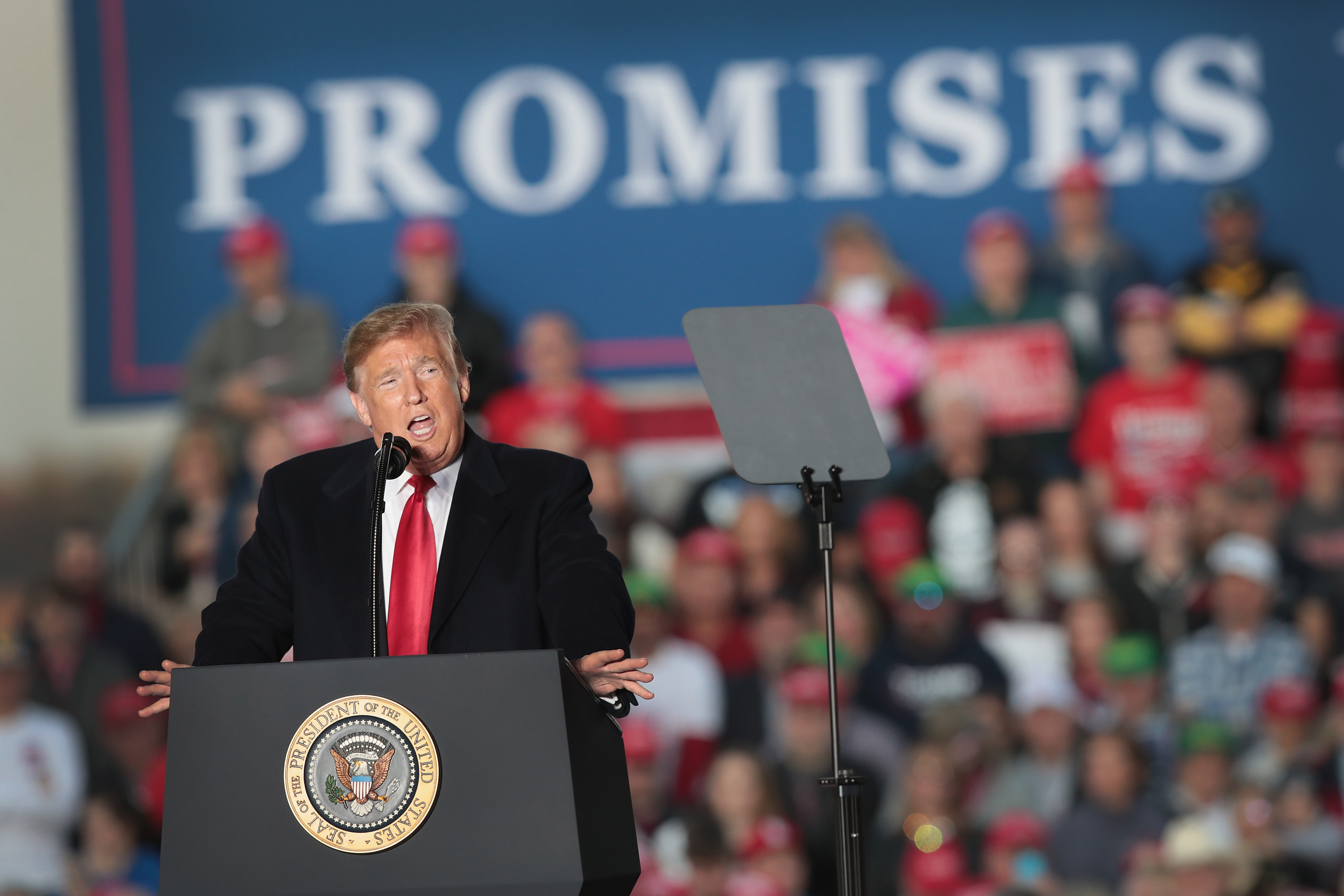Can the economy save the GOP from Trump's toxic presidency?
Americans may feel like they're getting richer, but the country's spirit is getting poorer


A free daily email with the biggest news stories of the day – and the best features from TheWeek.com
You are now subscribed
Your newsletter sign-up was successful
Whatever else is wrong with the country these days, at least the economy is rolling along, right?
Unemployment is low. Wages are rising. The economy is growing. And while there might be some concerns about inflation, as well as some wobbliness in the stock market, Republicans enter the midterm elections in decent position to offer a positive answer to a variation on Ronald Reagan's famous question: "Are you better off today than you were two years ago?"
For many Americans, the answer to that question is "yes" — financially, at least. And Republicans, understandably, are trying to make the most of it.
The Week
Escape your echo chamber. Get the facts behind the news, plus analysis from multiple perspectives.

Sign up for The Week's Free Newsletters
From our morning news briefing to a weekly Good News Newsletter, get the best of The Week delivered directly to your inbox.
From our morning news briefing to a weekly Good News Newsletter, get the best of The Week delivered directly to your inbox.
"Nobody's hot like we are," President Trump said at a Wednesday night rally.
The economy may not be as awesome as it appears. A good chunk of the 3.5 percent quarterly GDP growth reported last week came from federal government spending, much of it in the defense sector. And thanks to the gigantic tax cut Trump and the GOP Congress passed last year, a significant portion of government spending these days is financed by a huge and growing debt — economists expect the government will spend $1 trillion more than it takes in next year, a situation Trump's own national security adviser calls an "economic threat to society." And Republicans, if they somehow hang on to Congress after November, plan to use that growing debt as an excuse to slash Social Security and Medicare.
Today's economy is being built, in part, by making the future more fragile for millions of Americans.
Even if the economy were on more solid ground, and even if Trump could take total credit for it — which is not necessarily the case — an important question would remain: So what? Is a few extra points of GDP at the moment justification enough to send GOP candidates back to Washington and empower the Republican Party for a few more years?
A free daily email with the biggest news stories of the day – and the best features from TheWeek.com
Some people will undoubtedly say "yes." The economy technically entered "recovery" years ago, after the Great Recession, but it never quite felt like the country got its fiscal swagger back, did it? A whole generation of workers ended up getting a late start on the road to economic security, and they may never entirely make up the lost ground. If your family is just now starting to do well after years of treading water, issues like "democratic norms" and "America's moral standing" might seem a bit abstract.
And yet, as last week's political violence demonstrated, those abstractions can have very tangible consequences. Conspiracy theorists have long been a staple of public life, but the mass shooting in Pittsburgh and the pipe bombs sent to public figures by a Florida man suggest crank theories are becoming pervasive enough to motivate believers to deadly action.
Trump, as is well-documented, is the conspiracymonger-in-chief, a man who embraced birtherism, Alex Jones, and George Soros theories. Google the term "Trump, without evidence," and you'll pull up a wide array of stories in which Trump — yes, without evidence — asserts everything from a faked Puerto Rican death toll to a conspiracy by social media firms to deny their platforms to conservative voices. He even accuses NBC of faking footage of an interview with him. His constant battle with reality, and his unending accusations of bad faith against those who depict that reality differently than he would like, is not merely gauche: It's starting to cost actual lives.
There are many Trump supporters who are embarrassed by the man but still love the results his presidency has produced. Among them are the "but Gorsuch" contingent of conservatives who are grateful that the president has kept his promise to appoint judges with only the most steadfast right-wing credentials. The "but the economy" folks are perhaps lesser known, but the Republicans are counting on them: Trump's re-election campaign's closing ad before the midterms highlights jobs and makes almost no mention of the president himself.
That's understandable, since incumbent presidents almost always see their party lose during midterm elections. For Republicans, this economy would normally be a hedge against big losses in Congress. As The Washington Post reported on Wednesday, though, that's not the case this year: There's usually a correlation between the economy and a party's election performance, but this year, studies suggest the GOP could lose as many as 39 House seats.
"Clearly the health of the economy is not the only, or even the primary, way in which Americans view the state of the United States," the Post's Phillip Bump wrote.
That's as it should be. Trump and his party don't just get to take credit for the country's economic condition while absolving themselves of responsibility for the rest. Americans may feel like they're getting richer, but the country's spirit is getting poorer. Vote accordingly.
Joel Mathis is a writer with 30 years of newspaper and online journalism experience. His work also regularly appears in National Geographic and The Kansas City Star. His awards include best online commentary at the Online News Association and (twice) at the City and Regional Magazine Association.
